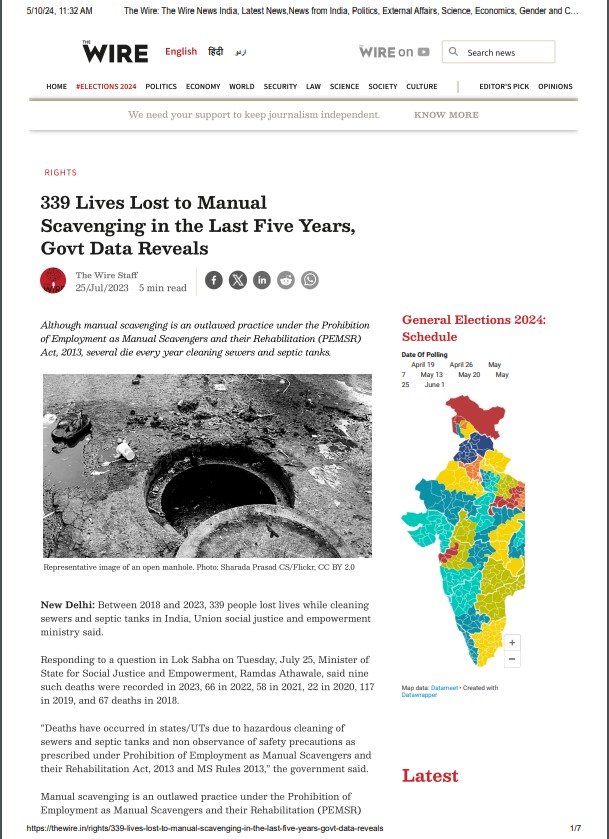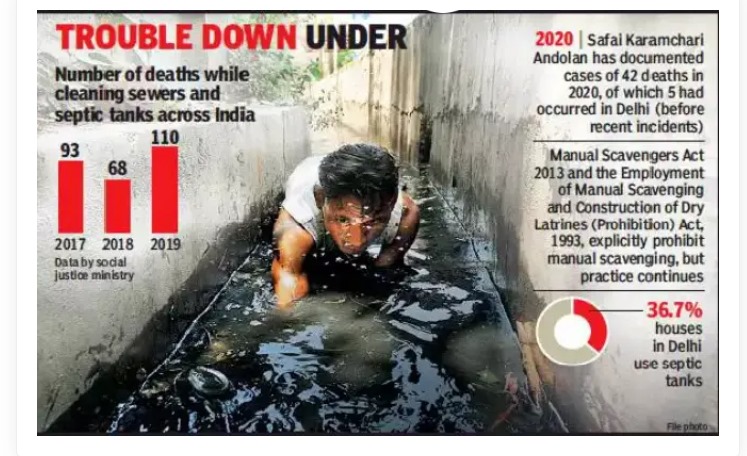In an article published by the Wire on 25th July, 2023 it was reported that ‘Responding to a question in Lok Sabha on Tuesday, July 25, Minister of State for Social Justice and Empowerment, Ramdas Athawale, said nine such deaths were recorded in 2023, 66 in 2022, 58 in 2021, 22 in 2020, 117 in 2019, and 67 deaths in 2018.
“Deaths have occurred in states/UTs due to hazardous cleaning of sewers and septic tanks and non observance of safety precautions as prescribed under Prohibition of Employment as Manual Scavengers and their Rehabilitation Act, 2013 and MS Rules 2013,” the government said.’

It is disheartening to see that almost a year later there has been no change is circumstances and people are still losing their lives due to the cruel practice of manual scavenging.
At least four persons, including three sanitary staff, died of asphyxiation inside a septic tank of a house in Pt Deen Dayal Upadhyaya Nagar (Mughalsarai) of Chandauli district late on 08.05.2024.

It’s heartbreaking and unacceptable that people are still losing their lives to manual scavenging in this day and age. Manual scavenging not only robs individuals of their dignity but also puts their lives at risk due to the hazardous nature of the work.
Governments have a responsibility to protect the rights and dignity of all citizens, yet the persistence of manual scavenging reflects systemic failures in addressing poverty, caste-based discrimination, and inadequate sanitation infrastructure. Despite legislation and policies aimed at eradicating manual scavenging, enforcement and implementation remain weak in many regions.
Each death resulting from manual scavenging is a stark reminder of the urgent need for governments to take decisive action. This includes investing in alternative technologies for sanitation, providing education and vocational training opportunities for affected communities, and ensuring strict enforcement of laws prohibiting manual scavenging.





Your blog is a constant source of inspiration for me. Your passion for your subject matter is palpable, and it’s clear that you pour your heart and soul into every post. Keep up the incredible work!
Thank you for the auspicious writeup It in fact was a amusement account it Look advanced to far added agreeable from you However how can we communicate
I wanted to take a moment to commend you on the outstanding quality of your blog. Your dedication to excellence is evident in every aspect of your writing. Truly impressive!
Wow superb blog layout How long have you been blogging for you make blogging look easy The overall look of your site is magnificent as well as the content